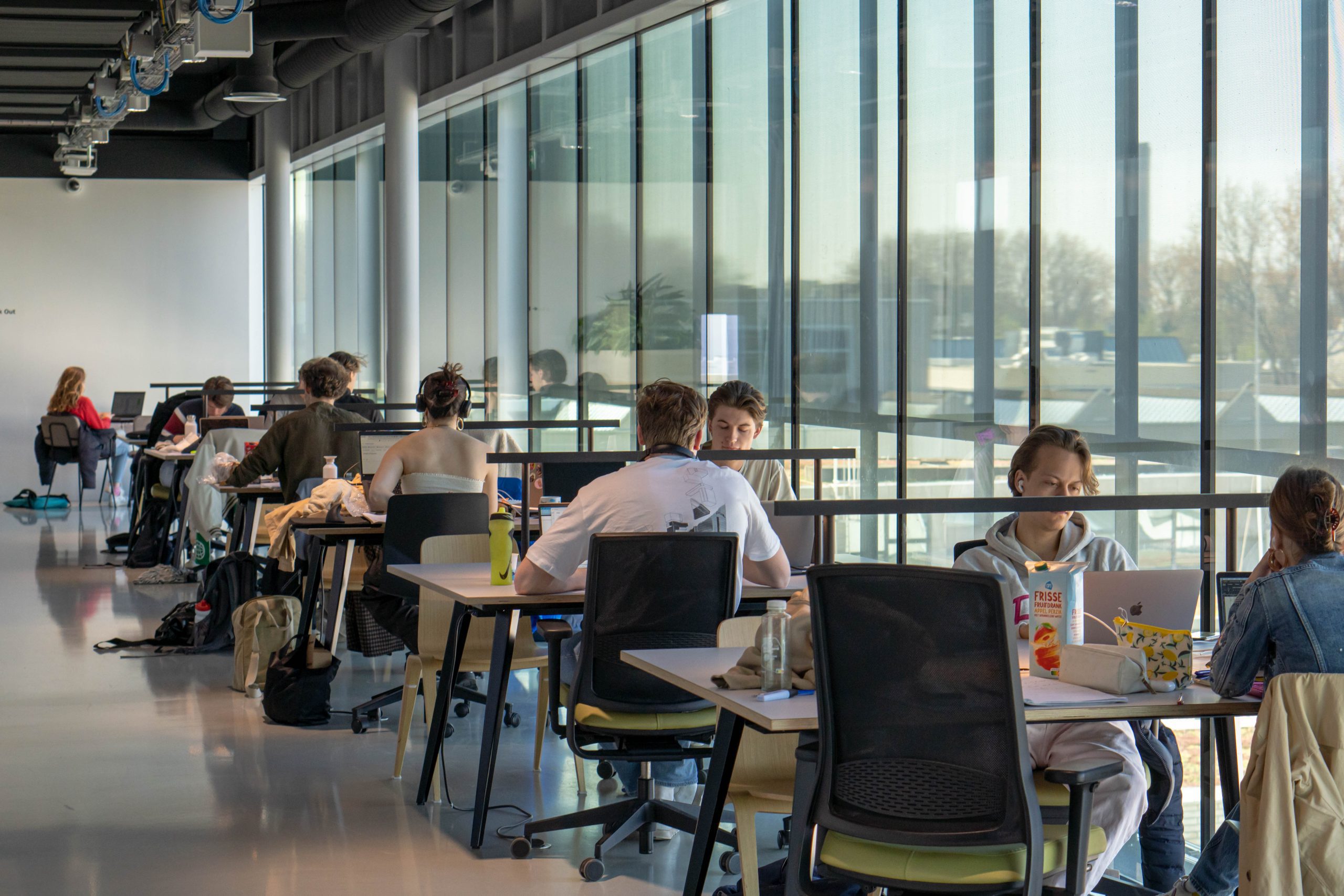Friday, 465,852 students have received their first payment of the basic student grant. DUO has transferred a total of 130 million euros to students’ bank accounts.
The basic grant is actually also a loan. It is only waived if the student obtains a degree in higher education within 10 years. (Photo: Thijs van Reeuwijk)
After eight years, students can receive the new basic student grant: 110 euros a month if they live at home and 439 euros a month for students living away from home. The latter amount includes an additional 164 euros, which will cease to apply from the next academic year.
The number of applicants has exceeded expectations. Instead of the expected take-up rate of the basic student grant of 435 thousand students, almost 31 thousand more applications were received.
Lower borrowing
Thanks to the basic student grant, the number of students with additional student loans has decreased significantly. Students have reduced their borrowing by roughly 92 million euros in total.
There are currently 213 thousand students in higher professional education (HBO) and university education with student loans, says a DUO spokesperson, compared with 317 thousand last year. The average loan amount has also fallen: from 677 euros to 575 euros per month. This figure also includes students without a basic student grant.
Of the 465 thousand students with a basic grant, 185 thousand also have a student loan on top. DUO plans to carry out a series of further analyses later this year aimed at determining, for example, the precise borrowing figures for the various groups of students.
It is worth noting that the basic student grant is actually a loan, which is waived (converted into a gift) if the student obtains a higher education diploma within ten years.
Additional student grant
From 1 January, more students will be entitled to a supplementary grant if their parents do not earn enough money to support them. The parental income limit is being raised from 53,900 to more than 70,000 euros (or even higher if parents have more than one child studying).
Student organisation ISO says it is a “relief” that the basic student grant is back, but is very disappointed that the temporary increase in the basic grant for those living away from home will be shelved from next year. After all, they say, inflation has not gone away. “The re-introduction of the basic student grant is cause for celebration”, says ISO Chair Demi Janssen. “That said, we can’t hang out all the bunting just yet.”
HOP, Bas Belleman
Do you have a question or comment about this article?
redactie@hogeronderwijspersbureau.nl


Comments are closed.